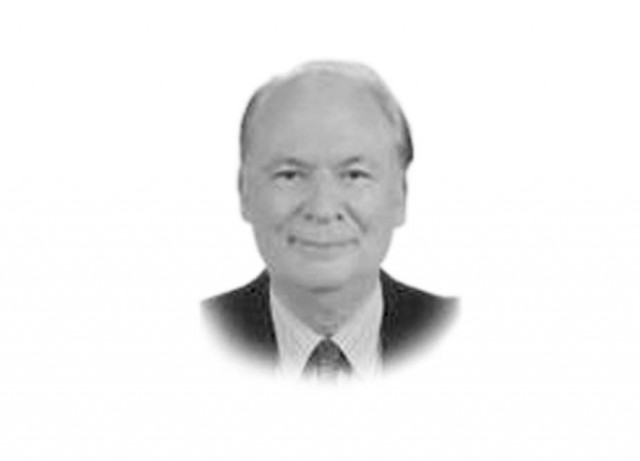Are the Americans really pulling out?
The good news for Hamid Karzai is that Uncle Sam will keep military and civilian advisers in Afghanistan.

anwer.mooraj@tribune.com.pk
What’s going to happen when the Americans pull out in 2014? Well … they’re not going to pull out, according to Anatol Lieven, British author, journalist and policy analyst, who addressed a select audience in Karachi on March 20. It’s just the ground troops who will be sent back. Not the cavalry. In a 45-minute analysis, places, periods and people were conjured up in depth and detail. The good news for Hamid Karzai is that Uncle Sam will keep a huge complex of military and civilian advisers in Afghanistan. The bad news for the tribal chiefs of the frontier province of Pakistan is that the drone attacks will continue. With seven best-selling books and a large number of articles to his name, 52-year-old Lieven is a scholar of formidable qualifications. He is also a jolly good speaker. When he dilated on what the political scenario is likely to be in Afghanistan and Pakistan after 2014, with the Americans maintaining a menacing presence in Kabul, the audience hung on to his every word. The absolute stillness in the hall was a tribute to a splendid lecture delivered by a man who has an abiding grip on the politics of the region.
Lieven also has a dry sense of humour and I enjoyed his quip about the extraordinary solipsism of American analysts who believe that an American withdrawal would trigger off civil war. “Well … what is happening in the country to-day?” he asked, tongue-in-cheek, “If it isn’t civil war?” Here are some of the ideas that emerged from the talk. Next year will see the breakdown of the Afghan government. Corruption in the civilian government will continue. There’s a strong chance of a takeover by a divided military with possible counter-coups. The Americans are still haunted by the images of Saigon in 1975, which an English journalist, sympathetic to the cause of the rice farmers, described as “an apocalypse of war-mongering bloodlust”. Around 30 per cent of Afghans support the Taliban. Support from inside Pakistan will not work under the Karzai regime. Americans, who are used to getting rid of their allies, are becoming more mealy-mouthed in their old age. Chances of an outright Taliban victory in Afghanistan are highly unlikely. India and Iran will undoubtedly meddle. China is concentrating more on the land routes rather than the naval lanes and is operating in a different theatre.
Published in The Express Tribune, March 25th, 2013.















COMMENTS
Comments are moderated and generally will be posted if they are on-topic and not abusive.
For more information, please see our Comments FAQ